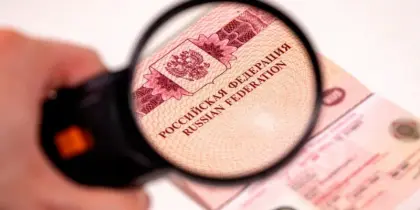Politicians loyal to Russia are coming under increased criticism in Eastern Europe, with Polish Deputy Minister of Foreign Affairs Marcin Przydacz yesterday criticizing the position of German Chancellor Olaf Scholz, accusing him of trying to “whitewash the Russians”.
Speaking on the TVP1 channel on August 17, he criticized Scholz, who did not support the ban on issuing Schengen visas to citizens of the Russian Federation. According to the Polish official, Scholz does not want to see that the majority of Russians actually support their country’s aggression against Ukraine. In fact, there are many supporters of Putin’s policy in Berlin and throughout Germany.
JOIN US ON TELEGRAM
Follow our coverage of the war on the @Kyivpost_official.
“He didn’t get to or he didn’t read all those reports about the huge support for Putin’s policies among ordinary Russians. Maybe he hasn’t seen all the videos of people gathering around the letter ‘Z’. You can live like this and not see it, but it is worth learning this knowledge in order to truly make the necessary political decisions,” Przydacz said.
All this was a response to statements made by Olaf Scholz regarding the idea of completely halting the issuing of visas for citizens of Russia. He does not share it, though at the same time he underlines the view that the aggression of the Russian Federation against Ukraine is “Putin’s war”.

ISW Russian Offensive Campaign Assessment, January 21, 2025
In response to this, Ukrainian Foreign Minister Dmytro Kuleba reminded that the war on the territory of Ukraine is not being waged by Putin, but by thousands of Russian soldiers.
“This is, of course, an attempt in some sense to whitewash or divide that there are good Russians and a bad tsar”, Przydacz stressed in response to Scholz’s statement.
He also emphasized that “Russian society, which has been fueled by propaganda for hundreds of years, lives in an imperialist dream in which its position would depend on how many territories it captures, how many countries it conquers”.
A reminder that on August 9 Ukrainian President Volodymyr Zelensky called on EU countries to suspend the issuing of visas to Russian citizens.
Czech Foreign Minister Jan Lipavsky emphasized on August 10 that he fully supports a complete ban on the issuing of Schengen visas for Russian citizens. The Czech Republic stopped issuing Schengen visas to Russians on February 25.
Last week Estonian Foreign Minister Urmas Reinsalu announced that the Estonian government has restricted entry to the country for citizens of Russia who have Estonian Schengen visas.
It was reported on August 14 that Poland is working on a concept that will enable Russians to be denied visas.
The government of Finland is also conducting discussions about limiting the issuing of tourist visas to Russians.
At the same time, the European Union will not be able to introduce a complete ban on issuing visas to Russian citizens, as such a step does not correspond with the visa policy of the EU. The Finnish publication Helsingin Sanomat reported this on July 28 with reference to the European Commission’s response to their request that the sanctions against Russia are aimed specifically at the government and the economic elite, “since the purpose of these restrictions is to prevent the financing of an aggressive war in Ukraine”, and that sanctions themselves are not directed against ordinary Russians.
You can also highlight the text and press Ctrl + Enter










